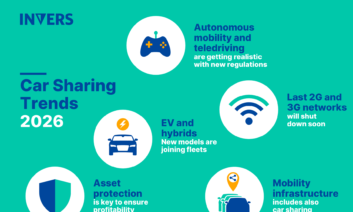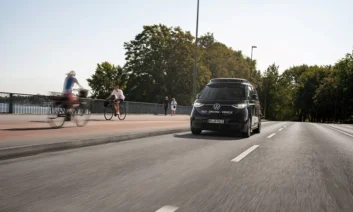Engineering fleet cuts insurance claims costs by 42% with technology
An infrastructure engineering business, operating a substantial fleet of 2,700 vehicles, has achieved a significant reduction in its motor insurance claims expenses. The company reports a 42% decrease in these costs over a relatively short period of just eight months. This impressive improvement is directly attributed to the recent implementation of a new telematics system across its vehicle fleet. The telematics system allows the company to monitor driver behavior and vehicle usage. By implementing this technology, the business has been able to better manage risk and improve driver safety, resulting in fewer accidents and subsequent insurance claims.

UK-based OCU Group previously had three vehicle tracking and camera systems, but none were giving it the tools it required to address rising insurance costs and safety concerns.
The company had only limited insight into driver behaviour, which made it impossible to tackle potentially risky driving habits. Plus, its video system relied on external memory cards that were constantly overwritten, so only 20% of its camera footage was received across the fleet. As a result, important video was often unavailable when required for insurance claims.
Krishan Rathour, Head of Claims and Insurance at OCU Group, said: “We didn’t have a platform which allowed us to obtain crash alerts, review clear footage, and assess all driver behaviours to establish liability. This would delay the processing of each claim from accident notification through to notifying insurers.”
Telematics & dashcams
To combat rising premiums and total claim costs, OCU Group decided to invest in Samara’s telematics system, AI dashcams and integrated management platform.
Key to the programme was securing internal management support.
“We first took to rolling out by educating managers through lots of workshops and webinars,” said Chris Shorey, Regional Plant and Transport Manager at OCU Group. “We were sending out webinars off the back of global emails—but attendance was very low. So we sent out personal emails instead, and it was 90% accepted. Making it our responsibility made a real difference.”
Privacy issues
The company then involved drivers, addressing privacy concerns across its unionised workforce.
“We explained we weren’t watching them constantly. We’re only interested if there is an incident, or if they’d done something that needed addressing,” said Shorey.
The results quickly delivered a reduction in incidents of speeding and mobile phone use.
Insurance wins
The frequency and severity of collisions also fell, with the number of claims dropping by 28% and the average cost of each claim down by 22%. Plus, automatic real-time crash alerts means than 70% of claims are now reported to insurers within 48 hours, compared to four to five days previously.
This has helped OCU Group negotiate a 5% reduction in its insurance premium.
“We’re able to be a lot more proactive,” said Rathour. “As soon as we’re notified of an accident involving one of our vehicles, we’re in the system, reviewing footage and tracker reports, contacting the driver and their manager, and requesting photos. The feedback from our insurer has been brilliant; they’ve seen a positive impact in our risk management and claims processing.”
After these early wins, OCU Group is now looking to generate further benefits from the technology, starting with a focus on fuel efficiency and engine idling, followed by driver scorecards and incentives to encourage safer driving behaviours.







